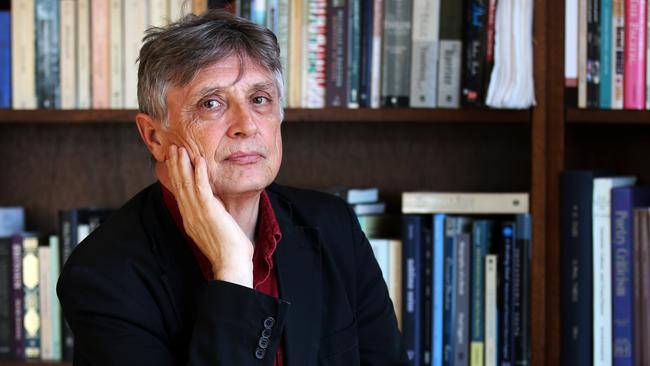Funding cut puts Australian literature role at risk at Sydney University
The future of the nation’s oldest and most prestigious professorship of Australian literature is in doubt.

The future of the nation’s oldest and most prestigious professorship of Australian literature is in doubt, with the University of Sydney cutting off core funding for the role.
Paul Giles, Challis Professor of English at the university, confirmed on Tuesday that the institution would need to find external funding if the chair was to survive, as the incumbent, Robert Dixon, retires at the end of the year.
“The dean has said that in order to get the chair reappointed, we are going to need external fundraising,’’ Professor Giles said.
The move by a university long seen as the country’s strongest academic supporter of Australian literature was causing “great concern’’ and was “mystifying’’, said Fiona Morrison, president of the Association for the Study of Australian Literature.
A senior lecturer at the University of NSW, Dr Morrison said the Sydney professorship had an “extraordinary history’’ and that the threat it faced “does feel symptomatic of an oversight or a lack of capacity to see the value (of Australian literary studies)’’.
She questioned whether “there is an imperialist problem, where we are reverting back to Europe and North America where quality is decided’’.
The move comes as academics have warned that the nation’s leading universities were “not interested in promoting the study of things Australian’’ and were “failing in their responsibilities as national institutions’’.
Greg Melleuish, a professor at the school of humanities at the University of Wollongong, has told a parliamentary inquiry that universities are “primarily international in their loyalties’’, a view backed by historian Stuart Macintyre.
Dr Morrison said the defunding of the Sydney chair reflected a broader “non-commitment to the field” of Australian literary studies, even though a lot of “vibrant’’ and important work was being achieved. Sydney, like other universities, had cut the number of lecturing jobs in this field, she said, and no longer allowed its undergraduates to study Australian literature as a major.
The threat to the Sydney chair follows the University of Queensland’s decision not to replace its professor of Australian literature and cultural history, David Carter, who retired last year.
“Queensland is not making that a priority. This is a dilemma for the whole of humanities, of course, it’s just hard times,’’ Professor Giles said.
Bronwyn Lea, the head of UQ’s school of communications and arts, confirmed that the “particular title’’ of Australian literature professor “disappeared with Professor Carter’’, when he retired, as this was not an endowed position. She said Anna Johnston, an associate professor, would soon be teaching Australian literature at UQ.
Professor Giles agreed the Sydney professorship was symbolically significant, as it was the country’s first permanent professorship dedicated to Australian literature.
The role was established in the 1960s after academics and champions of local literature campaigned for it, taking on an academic establishment that saw Australian writing as inferior. When Dame Leonie Kramer was appointed to the job in the late 1960s, she became the first female English professor in Australia and went on to become the ABC’s first chairwoman.
“Certainly I and colleagues in the English department (at Sydney) have been making that case that we want to see the chair (Professor Dixon) replaced,’’ said Professor Giles.
He conceded the university had not started its search for external funding. “We haven’t even tried yet,’’ he said. “I am hopeful we will be able to find it.’’
The withdrawal of internal funding, he said, was caused by the original funds for the role not being “ring-fenced’’, a resources shortage within the university’s English literature department, and a decline in research grants going to the humanities. He also said students were more interested in communications and media than literature courses. But Dr Morrison said 2018 data showed “Australian literary courses are about the fourth-most popular course in higher education’’.




To join the conversation, please log in. Don't have an account? Register
Join the conversation, you are commenting as Logout